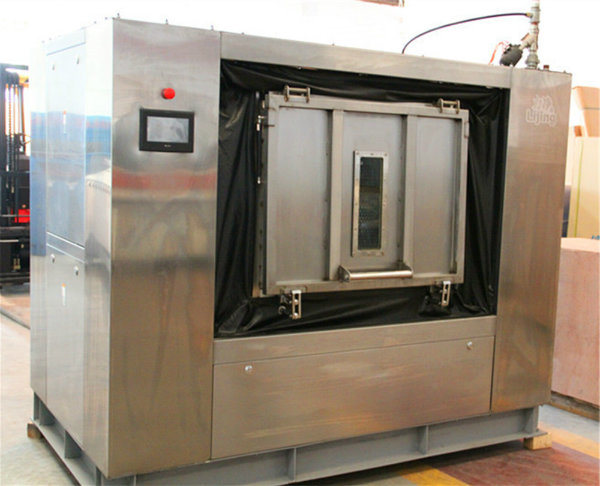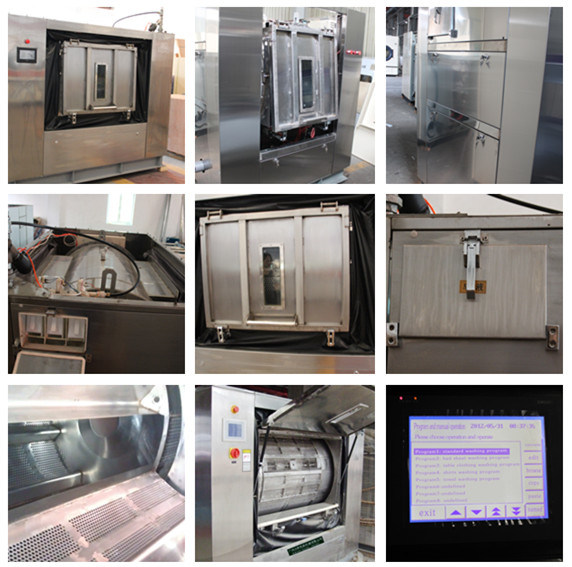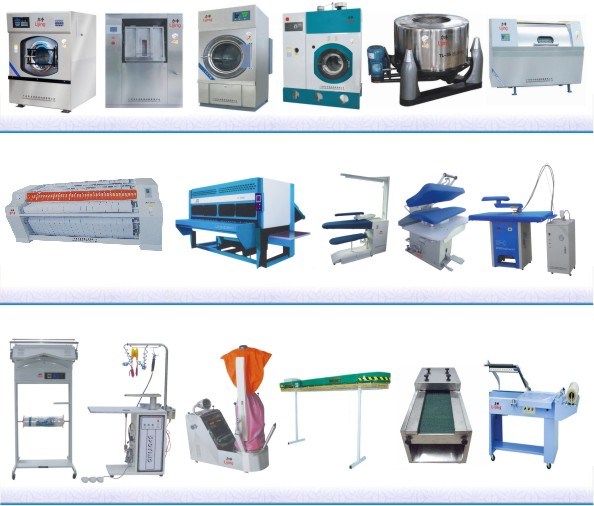Hospital washing machines:
1. Our newly designed GL series isolating type of washing and de-watering machines meet the requirement of gem-free, dust-free, anti-static washing needs. With the isolating type washing equipment and isolating wall, it divides the laundry room into two separate independent operating areas, via.: "Clean" area and "Non-Clean" area.
2, Launderettes will be loaded into the washing machine through the door from the "Non-Clean" room side. After washing, unloading will be from the "Non-Clean" room polluting the "Clean " room. Thus it prevents the clean launderette from being contaminated and infected again.
3. GL series of isloating type of washing machine from our company are of aduvanced standard, well built, economical to operate, easy maintenance and of good performance. They are widely used by hospital, food and pharmaceutical factories, nuclear power plants etc where extreme dust and gem-free environmental requirement for laundry room are needed. It is the ideal laundry equipment for such situation.
| Model | GL-50 | GL-100 |
| Specified washing capacity(kg) | 50 | 100 |
| Drum demention(mm) | Φ 880× 1050 | Φ 950× 1450 |
| Motor Power(kw) | 5.5 | 7.5 |
| Equipment Net Weight(kg) | 1340 | 1800 |
| Equipment Gross Weight(kg) | 1420 | 1920 |
| Dimension(mm) | 1720× 1100× 1820 | 1850× 1330× 2200 |
Machines Image


Our Products

Guangzhou Lijing Washing Equipment Co., Ltd
Add: No. 13, Feie Industrial Zone, Zhongcun Town, Panyu District, Guangzhou, ChinaÂ
Engineering Plastics
Engineering plastics are a bunch of plastics that are used most ordinarily in industries because of their enhanced mechanical and thermal properties. They are used mainly in situ of thermoplastic materials instead of thermosetting ones because of the fact that they will be remolded into the specific shape and size whether or not after cooling and settling down. In accordance, to the suitable convention and standards, the definition of engineering plastics (McQuiston, 1980) are: (1) the family of nylon; (2) polycarbonate; (3) polyphenylene oxide; (4) acetal; (5) engineering grade of ABS; (6) polysulphone; and (7) polyphenylene sulphide. Engineering plastics become the fabric of choice for various applications because of their good mechanical, chemical properties, strength, rigidity, self-lubrication, and fire safety. Certain groups of engineering plastics which include polycarbonates and polyamides are useful in industries due to their high resistance to impact and abrasion respectively.
Engineering Plastics,Multi-Functional Engineering Plastics,Thermoforming Plastics,Degradable Plastics
Sunrise Group Corporation , https://www.sunriseindust.com